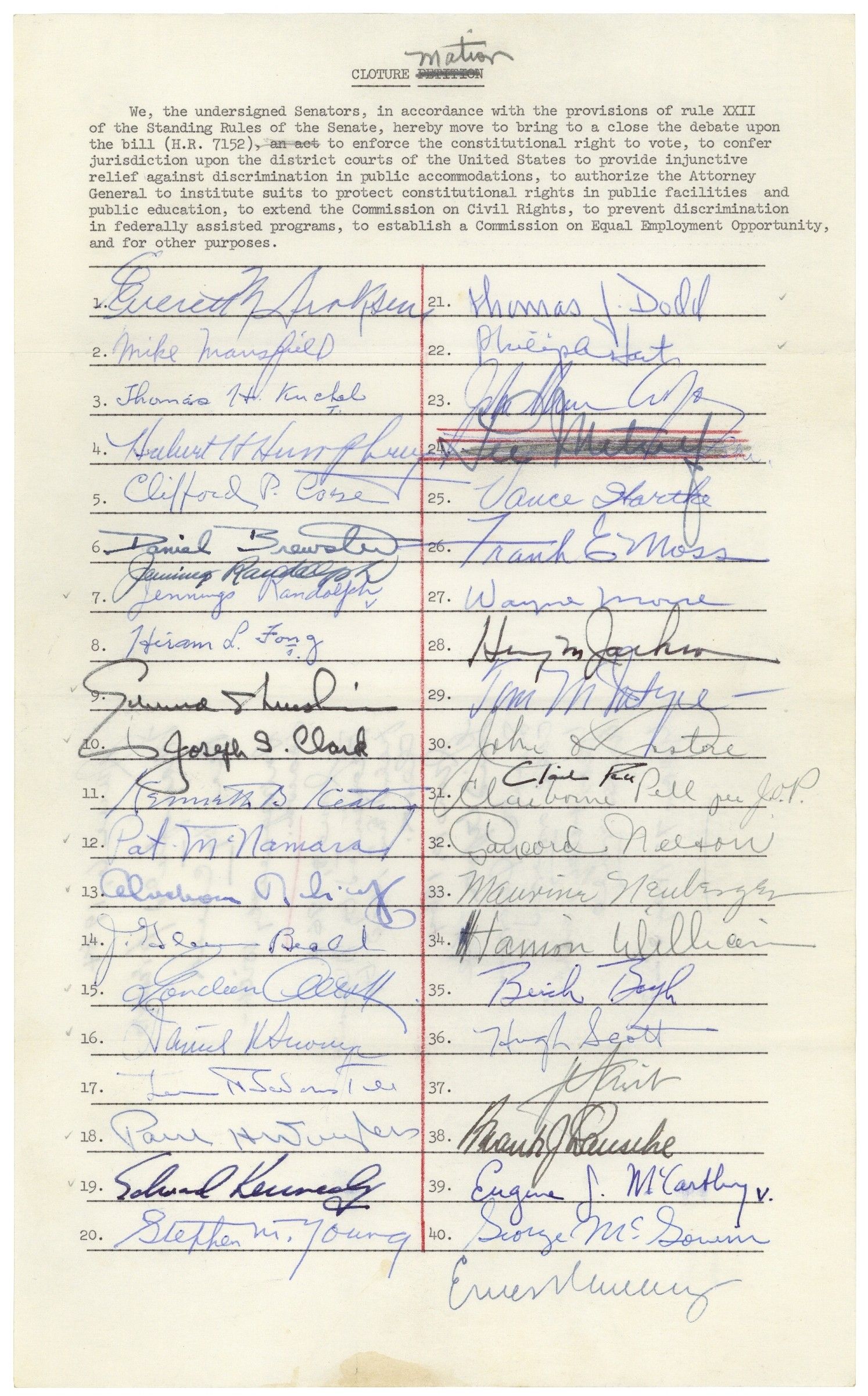Civil Rights Act of 1964
- How did the Civil Rights Act of 1964 impact the United States and its ongoing struggle for racial equality?
- What were the key events and individuals that contributed to the passage of the Civil Rights Act of 1964?
- In what ways did the Civil Rights Act of 1964 address and address systemic racial discrimination and segregation in various aspects of American society?
- What were some of the significant challenges and opposition faced during the process of enacting the Civil Rights Act of 1964?
- How did the Civil Rights Act of 1964 shape the future of civil rights movements and legislation in the United States?



Civil rights leaders meet with President Kennedy and Vice President Johnson to discuss civil rights legislation following the historic March on Washington, August 28, 1963.

Martin Luther King Jr. and Malcolm X while listening to the Senate debate on the bill at the United States Capitol on March 26, 1964.

U.S. President Lyndon B. Johnson signs the Civil Rights Act of 1964 into law on July 2, 1964.
President Johnson's public address on July 2, 1964, regarding the Civil Rights Act of 1964.
Replica source: "Excerpt of the Engrossing Copy of H.R. 7152, the Civil Rights Act of 1964, Showing Amendments," 1964, National Archives, Records of the U.S. House of Representatives, Record Group 233, National Archives Identifier 6037151, Online Text. https://catalog.archives.gov/id/6037151









